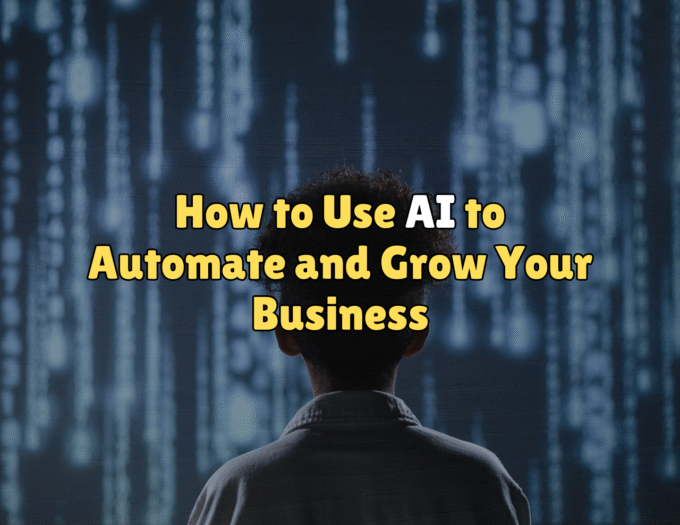
Major business opportunities can arise from an understanding of startup trends, including how customers’ needs and interests are changing.
Keeping up with trends allows you to make better decisions and position your business for success, whether you’re thinking about launching a new business or reevaluating your existing endeavor.
Knowing what’s coming allows you to modify your plan of action.
We’ll examine the startup trends of 2025 below, driven by shifting consumer expectations, the potential of artificial intelligence (AI), and more.
Understanding these subjects will enable you to evaluate your company critically and forecast future trends based on global events and industry advancements.
The most significant worldwide trend affecting startups in 2025
Startups were typically founded in response to emerging technologies or fields of interest in the past.
However, by 2024, a lot of startups will be founded in response to more significant shifts in how we connect, work, and consume. It is no longer sufficient to find applications for new products; to stay up with the times, startup founders must reshape entire industries.
Startups today are not just following trends, but also creating them. Industry boundaries are becoming more hazy, and new innovations are being fueled by the global demand for sustainability, personalization, and resilience.
Each of these trends is significantly influencing how startups will develop in the years leading up to 2025.
Generative AI
In a variety of fields, including marketing and medicine, generative AI is redefining what is feasible. AI is being used by startups to push for greater efficiency, personalization, and predictive capabilities in addition to automation.
Financial technology (fintech) and decentralized finance (DeFi)
Conventional business models are being disrupted by decentralized finance. This is particularly true in emerging markets, where people’s money management practices are changing due to accessibility and financial independence.
From 2024 to 2029, the DeFi market is expected to grow at a compound annual growth rate of nearly 11%.
Due to fintech startups that keep improving embedded finance solutions, buy now, pay later (BNPL) is also anticipated to expand globally and become an even more common payment option.
Innovations in manufacturing and logistics
Global supply chain disruptions brought on by the pandemic, climate change, and geopolitical unrest are forcing startups to develop innovative manufacturing and logistics solutions.
As investors concentrate on creating more robust, adaptable supply chains, startups in logistics technology and supply chain management are anticipated to draw sizable venture capital. Here’s how 2025 startups are probably going to handle these problems.
Extremely customized products
Hyper personalization is probably going to be the most popular choice among consumers in 2025. Consumers now demand experiences and goods that are instantly customized to meet their unique requirements, routines, and tastes.
Businesses are developing micro segments and even distinct individual profiles in order to achieve this, moving beyond conventional segmentation models.
Sustainable consumer goods and climate technology
As environmental issues become even more urgent in 2025, startups specializing in climate technology and sustainable consumer goods may experience significant growth.
The market for climate technologies is expected to expand at a compound annual growth rate of nearly 25% between 2023 and 2033, offering adaptable answers to global environmental problems like waste management, energy, and sustainable consumer goods. The most significant changes are taking place here.
Vertical software as a service (SaaS) and solutions tailored to a particular industry
Vertical SaaS, or industry specific software created for niche markets like legal, agriculture, and healthcare, is replacing broad, horizontal SaaS offerings targeted at a broad audience in B2B SaaS startups.
Startups with deeply integrated, sector specific offerings are responding to the growing demand for specialized solutions from various industries and establishing themselves as essential partners.
Conclusion
More and more startups are integrating social good into their business plans without compromising profitability. A company’s ability to balance profit and purpose is demonstrated by its B Corp certification, which is increasingly in demand.
These companies are demonstrating that putting ethics first, whether in corporate governance, environmental impact, or employment practices, doesn’t have to mean sacrificing financial success.
In actuality, consumers who are willing to pay more for goods that align with their values are increasingly drawn to ethical startups.
Latest Posts
The Psychology Behind Effective Branding in 2025
The majority of human decisions are neither random nor random. Effective businesses...
How to Use AI to Automate and Grow Your Business
Although artificial intelligence has been employed in various industries across the globe...
How to Build a Brand That Customers Love
It’s challenging to develop a product that appeals to the market. When...
Passive Income Ideas That Actually Work in 2025
With an uncertain economic future ahead of us, we’ll all be searching...













Leave a comment